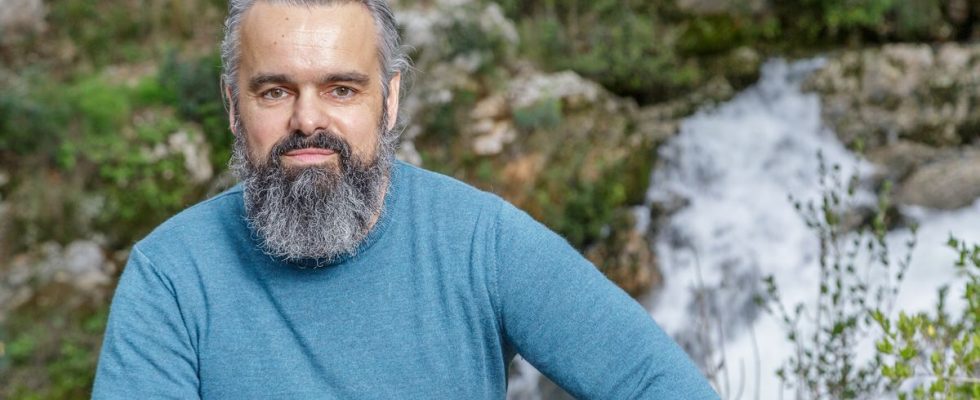Yves Tramblay is a hydroclimatologist at the IRD (research institute for development) in Montpellier. He is one of the authors of the “Mediterranean Region” chapter of the sixth report of the IPCC (Intergovernmental Panel on Climate Change), the second part of which was published in February 2022. A report where the vulnerability of the he Mediterranean area appears clearly, between the rise in atmospheric temperature (1.5°C compared to 1850), that of the sea (+0.29 to +0.44°C per decade) and the acidification of marine waters. He deciphers, for 20 minutesthe intense episode of drought that the department of Pyrénées-Orientales is going through, placed in a crisis situation since May 10.
Does the drought that the Pyrénées-Orientales have been experiencing for more than a year portend major changes for the south of France?
It is a very good example of an abnormal situation, which will be more and more frequent and will potentially be, in a few decades, the new climate. This is clearly the conclusion of all the studies and scenarios of the IPCC: major drought episodes in the Mediterranean will be one of the main consequences of climate change. Hence the need to anticipate it and not be faced with very violent choices in ten or twenty years.
Why is this department particularly affected?
The rain deficit is very important. In January, they did not exceed a hundred millimeters of rain, which is very little at a time when the water tables are generally recharged. But the situation is not specific to this department. We are on the same pattern as Spain with a drought that has settled in Catalonia for several years. And there, it’s a disaster. In the Hérault, the soil humidity rate is far from what it should be at this time of year.
What will be the consequences of this drought?
The stock of water is not infinite. People share the water available for different uses, in particular agriculture and tourism, with a problem common to the whole of the Mediterranean region: there is a huge influx of people in summer, when it is not not rain. The water stocks available in the summer are entirely linked to what it rained the previous winter. Mechanically, we are moving towards greater usage conflicts. And so the question will arise: whose tap will we cut off?
Strong rise in water levels, which will affect 37% of the Mediterranean coasts, increased desertification, fires which will burn up to a quarter of Natura 2000 sites, episodes of heavy rains and floods: the report of the IPCC is worrying…
With this episode of drought that sets in over time, we realize that it’s not going to happen in a hundred years… Maybe next year, we will have an extremely rainy winter. If that happens, people will unfortunately lose their memory. But if we count the dry winters over ten or twenty years, we will realize that drought is indeed setting in. I am worried, because I find the stark contrast between the content of our studies and the decision-making behind it. I think there is a lack of communication and popularization on the part of scientists.
The IPCC report examines the need to adapt to these changes. What do you recommend?
There are different tracks. In particular those that relate to water savings in general, for example by facilitating the reuse of wastewater. But also an extremely important aspect to explore, which concerns the reduction of water for agricultural uses, one of the main items of consumption. By optimizing irrigation, using crop types, for example vine varieties that need much less water than others. But it takes a will to change things.
Do you feel a realization?
I don’t feel like there’s any real consideration of what’s to come. I fear that quite quickly, and we are quite a few scientists to share this observation, that we have waited so long for there to be no more technical solutions. We are witnessing the migration of plant species to other regions and this is only the beginning. Projections indicate, for example, that making wine in the Mediterranean will become complicated in a few years. You have to prepare for it. For example, we manage to grow wine in very arid places, but with grape varieties that are ultra-resilient to drought. We have extremely important choices to make. If we don’t make these choices, we go into a wall.
What are the leeway?
It is not enough to put in place drought decrees, we must consider longer-term planning, otherwise we will have to manage crises each time, which will become more and more serious. I don’t have the feeling that radical changes are on the way. For this, incentives are needed at two levels. At the national level with a legislative framework. And local, with consultations, to adapt what can be done according to the context. There is no single solution for the whole territory. Farmers are in any case very well placed to know their land well, what can or cannot be done there. But there must be a direct confrontation between purely economic imperatives and this natural aspect.
Is this the example or rather the counter-example of mega basins?
This is a pretty glaring example. Because there is less water, we will irrigate more. It may make sense from an economic point of view, but it is nonsense from a climate point of view. It’s short-term management. We come up against the main stumbling block: making it understood that short-term thinking will not last the distance with climate change, which is already clearly visible in the Mediterranean. I am a scientist and a civil servant. Scientists, many in my case, have nothing to sell, our discourse is disinterested. I have the feeling that the population realizes that there is a concern. On the other hand, I also often hear a climatosceptic discourse or denial vis-à-vis certain lobbies. As soon as the observation collides with economic interests, it is denigrated.

